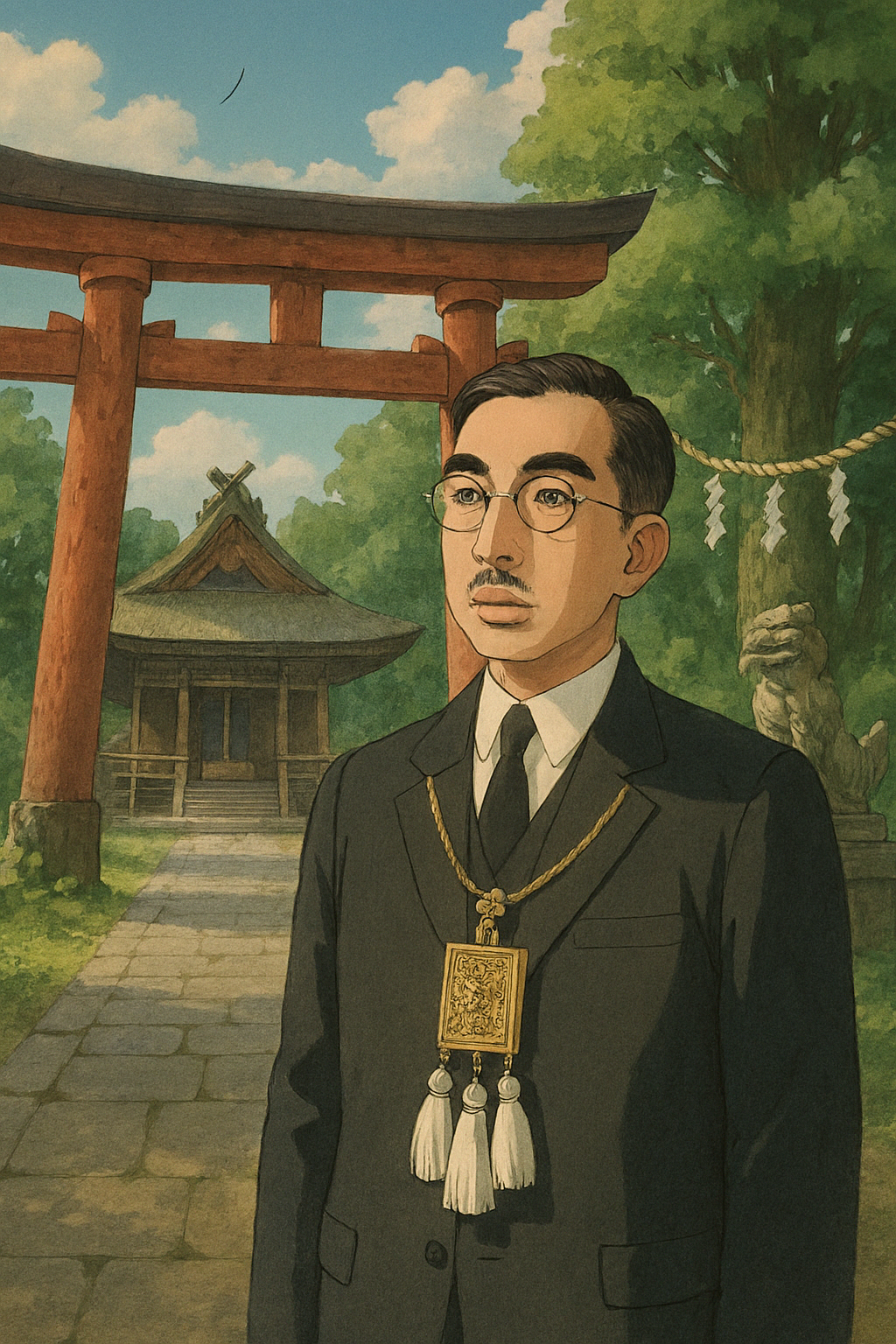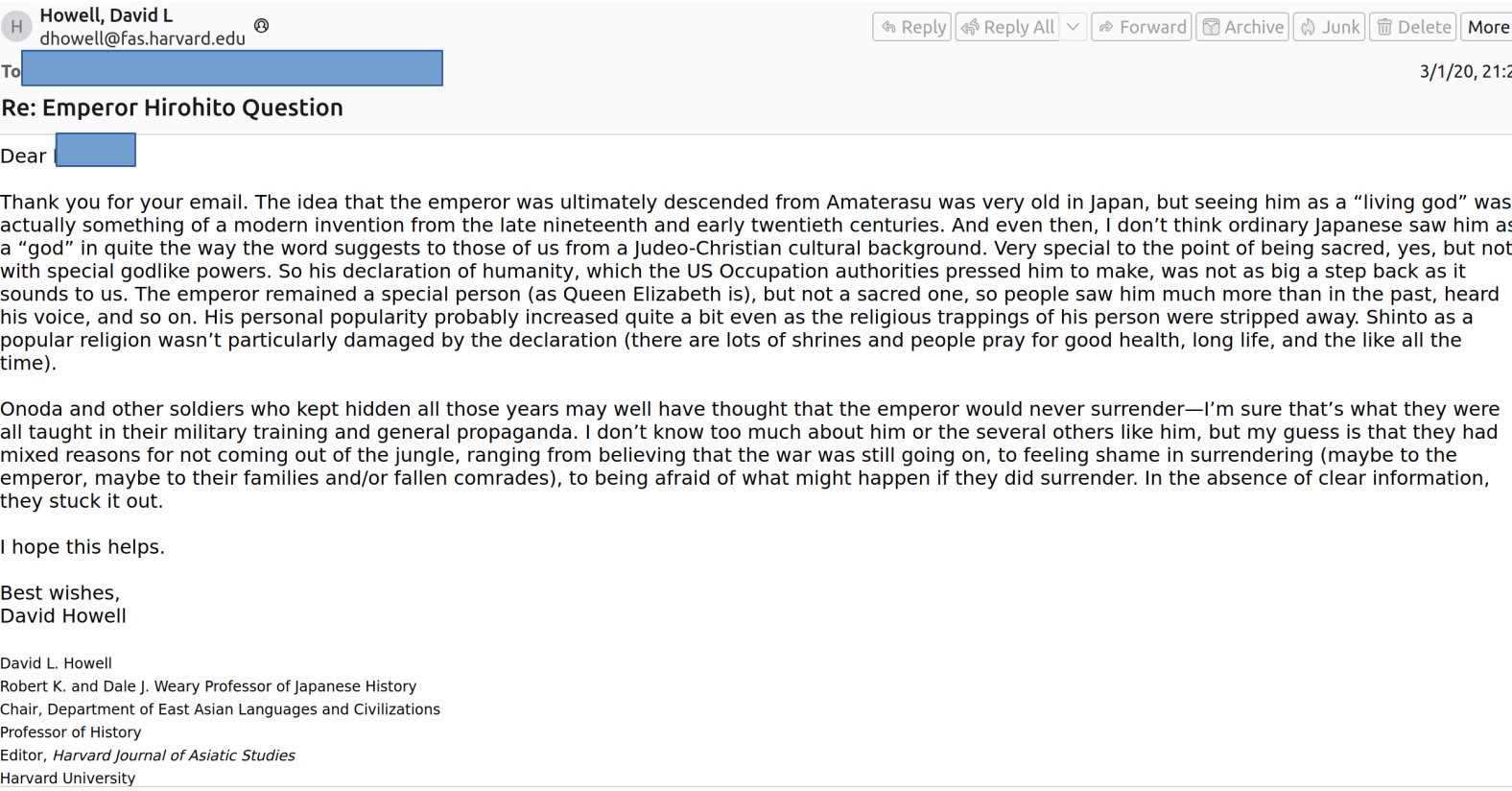How Did Shintoism Survive the Humanity Declaration?

Introduction
In the west, it is hard to understand how Shintoism is the largest religion in Japan, despite Emperor Shōwa (Hirohito) declaring that he was not divine in the 1946 Humanity Declaration. The pertinent section of the declaration translates as being a "false conception that the Emperor is divine" (BBC, 2009). However, this declaration does not invalidate Shintoism.
The Divine Emperor
There are ancient sources that reference the Japanese emperor as divine. For example, in the Chronicles of Japan, Yamato Takeru refers to his father, Emperor Keikō, as a god. Takeru declares"I am the child of a living god"(Shoki, 720). Similarly, in the Collection of Ten Thousand Leaves, a poem refers to the Emperor as an emanation of God, stating "From the will of God, who appeared in the form of a human in this world, the name of the emperor" (Hitomaro, 750).
This Shinto idea of the emperor being a descendant of god, and particularly a living god, intensified leading into the WWII era. The 1937 Cardinal Principles of the National Polity referred to Emperor Hirohito as gen'ū no kami, or a manifest deity (Wikipedia, 現人神). Critically,
This term gen'ū no kami (or, in reverence, called arahitogami) is different from what is meant by an 'absolute' or omniscient, omnipotent god. It signifies that the imperial ancestors are manifest in the Emperor, who as their divine descendant is one body with them. The Emperor eternally remains the fundamental source of the creation and growth of the people and the land, an infinitely noble and august presence. (Wikipedia, 現人神)
Contextualizing the Declaration
So, the "humanity declaration" was not as if the God of Israel renounced his position, but more like if a chosen servant, descended from the patriarchs, denied himself as a son of god. It is very inaccurate to make these disparate analogies, but the point is that it would hardly invalidate most forms of Judaism/Christianity. Additionally, while the Emperor no longer was referred to as Akitsumikami, in a debated point he could still be referred to as Arahitogami (Genningami), since it was never explicitly denied.
At its core, Shintoism is a decentralized, animistic religion, with huge variations in beliefs. At most, the declaration invalidated a specific form of Shintoism, akin to if it was discovered that Jesus desired babies to be baptized, overturning a tenet of the Baptist denomination, while entirely un-affecting Catholicism.
Professor David Howell of Harvard graciously summarized the muted effects of the declaration on the Shinto religion:

References
BBC. (2009, September 7). Divinity of the Emperor. https://www.bbc.co.uk/religion/religions/shinto/history/emperor_1.shtml
Hitomaro. (750). Chronicles of Japan. https://www.seisaku.bz/nihonshoki/shoki_07.html
Wikipedia. 現人神. Retrieved on April 15, 2025, https://ja.wikipedia.org/wiki/%E7%8F%BE%E4%BA%BA%E7%A5%9E